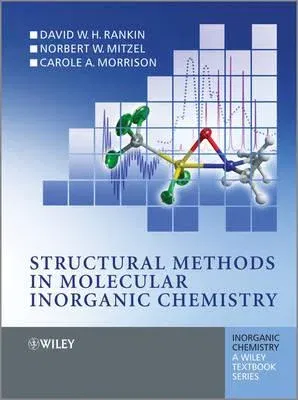Determining the structure of molecules is a fundamental skill that all
chemists must learn. Structural Methods in Molecular Inorganic
Chemistry is designed to help readers interpret experimental data,
understand the material published in modern journals of inorganic
chemistry, and make decisions about what techniques will be the most
useful in solving particular structural problems.
Following a general introduction to the tools and concepts in structural
chemistry, the following topics are covered in detail:
- computational chemistry
- nuclear magnetic resonance spectroscopy
- electron paramagnetic resonance spectroscopy
- Mössbauer spectroscopy
- rotational spectra and rotational structure
- vibrational spectroscopy
- electronic characterization techniques
- diffraction methods
- mass spectrometry
The final chapter presents a series of case histories, illustrating how
chemists have applied a broad range of structural techniques to
interpret and understand chemical systems.
Throughout the textbook a strong connection is made between theoretical
topics and the real world of practicing chemists. Each chapter concludes
with problems and discussion questions, and a supporting website
contains additional advanced material.
Structural Methods in Molecular Inorganic Chemistry is an extensive
update and sequel to the successful textbook Structural Methods in
Inorganic Chemistry by Ebsworth, Rankin and Cradock. It is essential
reading for all advanced students of chemistry, and a handy reference
source for the professional chemist.

